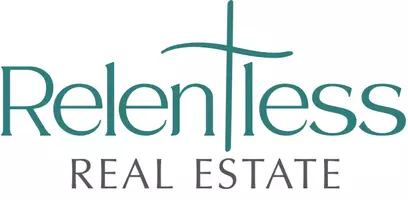How to get Pre Approved for a Home Loan in New Mexico

Are you considering buying a home in New Mexico but unsure about the home loan process? Understanding the difference between pre-approval and pre-qualification is crucial.
In this article, we will explore the importance of getting pre-approved, the various home loan options available in New Mexico, and the steps to successfully secure a pre-approval.
We will delve into the specifics of getting pre-approved in New Mexico, including state-specific requirements and current interest rates.
Stay tuned for valuable tips to ensure a successful pre-approval process!
Key Takeaways
- Pre-approval and pre-qualification are different and it is important to understand the difference before starting the home loan process in New Mexico.
- FHA, VA, and conventional loans are the most common types of home loans available in New Mexico, and they each have their own qualifications and benefits.
- To get pre-approved for a home loan in New Mexico, check your credit score, gather necessary documents, and apply with a lender. Be honest and compare options for the best rates and terms.
Understanding the Home Loan Process
Understanding the Home Loan Process involves navigating the steps required to secure financing for purchasing a property, whether through pre-approval or pre-qualification, especially in the context of New Mexico. This process is crucial for home buyers to determine their eligibility for a loan program based on factors such as credit score, income, and property value.
Once a potential buyer initiates the pre-approval process, the lender assesses their financial situation to determine the maximum loan amount they can qualify for. This step involves a comprehensive review of the buyer's credit history, income stability, and debt-to-income ratio. Conversely, pre-qualification offers a preliminary assessment without a full credit check, giving buyers an estimate of what they could potentially borrow. When considering New Mexico, factors like property taxes, insurance costs, and local market trends become critical in determining the feasibility of purchasing a home.
What is the Difference Between Pre-Approval and Pre-Qualification?
Understanding the Difference Between Pre-Approval and Pre-Qualification is vital for home buyers seeking financial assistance through a home loan program. While pre-qualification provides an estimate of how much a buyer might be able to borrow based on their credit score and income, pre-approval signifies a lender's commitment to provide a specific loan amount for a property purchase.
Pre-qualification is a helpful initial step, giving buyers an idea of their purchasing power before diving into the home search process. On the other hand, pre-approval involves a more thorough verification process, including a review of the buyer's financial background, employment status, debts, and assets.
Credit scores play a crucial role in both pre-qualification and pre-approval. Lenders use this information to assess the buyer's creditworthiness and determine the interest rate and loan terms. Buyers with higher credit scores usually qualify for better loan programs with lower interest rates and more favorable conditions.
During the home loan process, lenders also consider buyer qualifications such as stable employment history, income consistency, debt-to-income ratio, and available funds for a down payment and closing costs. Meeting these requirements increases the chances of securing financing for the desired property.
Why is it Important to Get Pre-Approved?
Obtaining Pre-Approval for a home loan is crucial for buyers as it signifies a lender's commitment to finance a specific property purchase based on the buyer's income, resources, and financial stability.
Pre-approval streamlines the home buying process by demonstrating to sellers that a buyer has the financial means to secure a mortgage. This initial step not only gives buyers a clear understanding of their budget range but also helps them stand out in a competitive housing market.
By assessing a buyer's financial situation upfront, lenders can offer more tailored loan options, ensuring that the buyer is looking at properties within their affordability range. The pre-approval process provides buyers with a clear picture of what they can realistically afford, avoiding any disappointments later on due to unmet financial requirements.
Home Loan Options in New Mexico
Exploring Home Loan Options in New Mexico reveals a range of financing choices available to buyers, including FHA, VA, and USDA loans tailored to the state's unique real estate landscape. These options vary in qualification requirements, rates, and property eligibility based on location within cities like Albuquerque and Las Cruces.
FHA loans, backed by the Federal Housing Administration, are popular among first-time buyers due to their lower credit score requirements and down payment flexibility. VA loans, offered to veterans and active-duty military personnel, often come with competitive interest rates and reduced or no down payment requirements.
USDA loans provide financing options for eligible rural and suburban homebuyers who meet income guidelines. In cities like Santa Fe and Rio Rancho, property eligibility may vary, impacting the availability of specific loan types.
What Types of Home Loans are Available in New Mexico?
In New Mexico, various Home Loan options are accessible to buyers, including FHA, VA, and USDA programs designed to assist individuals in purchasing a property. These loan programs cater to different price ranges and property types, ensuring that buyers can find suitable financing solutions.
For those looking to buy a home with a FHA loan, this program is well-suited for individuals with lower credit scores and who may not have a large down payment saved up. On the other hand, VA loans are specifically available for veterans, active-duty service members, and eligible surviving spouses, providing a flexible and favorable financing option. The USDA loan program is ideal for homebuyers interested in properties located in rural areas, offering low interest rates and zero down payment requirements. Depending on the property price and buyer's eligibility, one of these programs can be a perfect fit for securing the dream home.
What are the Differences Between FHA, VA, and Conventional Loans?
Understanding the Differences Between FHA, VA, and Conventional Loans is essential for buyers evaluating their home loan options. While FHA loans are backed by the government and offer assistance to first-time buyers with lower down payments, VA loans cater to veterans and provide unique benefits. Conventional loans, on the other hand, often require higher credit scores but may have lower closing costs. "
FHA loans, insured by the Federal Housing Administration, are known for their accessibility to buyers with lower credit scores and down payment requirements as low as 3.5%. They help make homeownership more achievable for many first-time buyers by offering competitive interest rates and flexible qualification guidelines.
Conversely, VA loans, guaranteed by the Department of Veterans Affairs, provide eligible service members, veterans, and their families with no down payment options and do not require private mortgage insurance. This can significantly reduce initial costs for those who qualify.
Conventional loans, which are not insured or guaranteed by the government, typically demand higher credit scores and down payments, often around 5% to 20% of the home's purchase price. They may have lower mortgage insurance premiums and more flexibility in terms of property types and loan amounts. While closing costs for conventional loans can vary, they tend to be influenced by factors such as the lender's fees, property location, and loan amount.
Buyers exploring loan options should carefully weigh the benefits and requirements of FHA, VA, and conventional loans to determine the most suitable financing choice for their specific needs."
How to Get Pre-Approved for a Home Loan
Securing Pre-Approval for a Home Loan involves a series of steps, starting with assessing your credit score and financial readiness to meet lender requirements. By gathering necessary documents such as W-2 forms and applying to a suitable lender, buyers can begin the pre-approval process efficiently.
Once you have a clear understanding of your credit score, it's essential to calculate your Debt-to-Income (DTI) ratio, a crucial factor that lenders consider. A low DTI ratio signifies good financial health and increases your chances of approval.
Next, prepare all required financial documents like tax returns, bank statements, and pay stubs to present a comprehensive financial profile to potential lenders.
Researching and comparing different lenders is a key step in finding the best terms for your home loan. Consider factors such as interest rates, loan terms, and customer service reputation when selecting a lender.
Submitting a well-documented mortgage application will streamline the pre-approval process and demonstrate your financial stability to the lender, paving the way for a successful pre-approval."
1. Check Your Credit Score and Finances
The initial Step in getting Pre-Approved for a Home Loan is evaluating your credit score and financial standing to determine your eligibility for various loan programs. Buyers must also consider income limits and debt-to-income ratios to ensure they meet lender requirements for pre-approval.
Checking your credit score is crucial as it gives lenders insight into your creditworthiness. A good credit score typically indicates responsible financial behavior, increasing your chances of securing a favorable loan. Reviewing your financial health involves assessing your income sources, savings, investments, and recurring debts.
Income limits play a vital role in loan approval. Lenders verify your income to gauge your ability to repay the loan. The debt-to-income (DTI) ratio is another key factor. It represents the portion of your income that goes towards debt payments each month. Lower DTI ratios are favorable as they show you have more financial flexibility.
2. Gather Necessary Documents
The next Step in the Pre-Approval process is to gather the necessary documents required by lenders, such as W-2 forms, to verify income and financial stability. These documents play a crucial role in obtaining lender approval for a mortgage.
Ensuring that you have all the required documents ready is essential for a smooth pre-approval process. Lenders typically ask for items like bank statements, pay stubs, tax returns, and employment verification forms in addition to the W-2 forms to assess your financial situation thoroughly.
By providing these documents, you demonstrate to the lender that you have a stable income, solid employment history, and are capable of managing the financial responsibilities that come with homeownership.
Having all the necessary paperwork in order not only speeds up the approval process but also increases your chances of securing a favorable mortgage rate and terms from the lender.
3. Choose a Lender and Apply for Pre-Approval
The final step in the pre-approval process involves selecting a lender and submitting an application for assessment. Buyers should compare lender offers, seek assistance where needed, and be prepared for discussions on aspects like closing costs during the pre-approval process.
When choosing a lender, it's essential to consider factors such as interest rates, loan terms, and any special programs they offer. It's recommended to gather offers from multiple lenders to evaluate which one best suits your financial needs. Seeking assistance from a financial advisor or a mortgage broker can provide valuable insights and help navigate the complexities of the application process.
As buyers receive various loan offers, reviewing and comparing them meticulously is crucial in making an informed decision. Comparing the APR rather than just the interest rate can help assess the cost of the loan accurately. Getting pre-qualified for a mortgage can give you a clear idea of your budget and streamline the application procedure.
Specifics for Getting Pre-Approved in New Mexico
Understanding the Specifics for Getting Pre-Approved in New Mexico involves considering state-specific requirements, current interest rates, and eligibility criteria set by entities like HUD. Buyers in New Mexico need to be aware of these factors to navigate the pre-approval process effectively.
When seeking pre-approval in New Mexico, applicants must pay close attention to the unique state regulations that govern the process. The state may have specific documentation requirements or income thresholds that differ from other regions. It's crucial to stay updated on any changes in legislation that could impact the pre-approval process.
Keeping an eye on interest rate trends in New Mexico is essential, as fluctuations can affect the overall affordability of a mortgage. Borrower eligibility criteria may also vary in New Mexico, so understanding these parameters is key to a successful pre-approval application.
Are There Any State-Specific Requirements for Home Loans in New Mexico?
Buyers seeking Home Loans in New Mexico must be aware of any State-Specific Requirements that may impact their eligibility for financing. These regulations, often set by the government, outline financial criteria and borrower obligations crucial for obtaining a loan in the state.
These state-specific requirements can vary and might include factors like minimum credit scores, debt-to-income ratios, and property eligibility guidelines. For instance, New Mexico may have unique regulations regarding property types eligible for financing or specific income thresholds that borrowers must meet.
Understanding these regulations is essential as they directly influence the approval process and loan terms offered. The government plays a significant role in regulating the mortgage industry in New Mexico, ensuring consumer protection and fair lending practices.
Financial criteria, such as stable employment history, sufficient income to cover monthly payments, and a healthy credit score, are fundamental for prospective borrowers in New Mexico. Lenders assess these factors to determine a borrower's creditworthiness and ability to repay the loan.
What are the Current Interest Rates for Home Loans in New Mexico?
Exploring the Current Interest Rates for Home Loans in New Mexico is crucial for buyers evaluating financing options in different cities and for various property types. Understanding these rates can help buyers make informed decisions regarding mortgage affordability and loan terms.
Interest rates for home loans in New Mexico typically vary depending on the city and the type of property. For example, cities like Albuquerque, Santa Fe, and Las Cruces may have slightly different rates due to market demand and economic conditions. Rates can differ for single-family homes, condos, or multi-family properties. Buyers need to consider these distinctions to find the best financing option for their specific situation.
Comparing rates across locations and property types is essential to ensure that the mortgage terms align with financial goals and affordability levels.
How Long Does the Pre-Approval Process Typically Take in New Mexico?
Understanding the Duration of the Pre-Approval Process in New Mexico is essential for buyers planning their property purchase timelines.
Property type plays a significant role in the pre-approval timeline, as different property types may have varying requirements or complexities that impact the processing time. For instance, condos often involve additional documentation or association approvals, which can extend the pre-approval process. The readiness of the buyer is crucial; having all necessary financial documents prepared beforehand can expedite the approval timeline.
An experienced Realtor in Albuquerque can streamline the process by guiding buyers on the required paperwork, connecting them with preferred lenders, and efficiently coordinating communications between all parties involved, ultimately expediting the pre-approval process.
Tips for a Successful Pre-Approval Process
Navigating the Pre-Approval Process successfully entails following key tips to ensure a smooth and efficient experience for buyers. From providing accurate information to considering pre-qualification before pre-approval, these guidelines can help buyers secure suitable loan options.
When starting the pre-approval journey, buyers should organize all their financial documents, such as pay stubs, tax returns, and bank statements, to present a clear picture of their financial health to the lender. It's crucial to disclose any debts, liabilities, or financial commitments during this stage to avoid surprises later in the process.
- Choosing the right lender is paramount in the pre-approval process. Buyers should research lenders, compare their offerings, and seek recommendations to find a lender that fits their needs and offers competitive rates.
- Understanding different loan options, including conventional, FHA, VA, or USDA loans, is essential for buyers to make an informed decision. Each loan type has its requirements and benefits, so it's advisable to explore and discuss these options with the chosen lender.
Maintaining open communication with the lender and promptly responding to any requests for additional information or documentation can expedite the pre-approval process. Collaboration and transparency between the buyer and the lender are key to a successful pre-approval outcome."
Be Honest and Accurate with Your Information
Being Honest and Accurate with Your Information during the pre-approval process is paramount for buyers seeking reliable financial assistance.
Transparency in disclosing income and providing precise credit details enables lenders to make informed decisions. Fudging numbers or inflating financial status may lead to inaccurate assessments, resulting in inappropriate loan offers. Lenders rely on the information provided to gauge risk and determine eligibility, so accuracy is key. By truthfully representing your financial situation, you not only enhance your credibility but also set the stage for a smooth loan approval process. Start by organizing your financial documents and sharing them openly to kickstart a positive lender evaluation.
Consider Getting Pre-Qualified First
Considering Pre-Qualification before proceeding to Pre-Approval can benefit buyers by offering an initial assessment of their financial readiness and loan qualification. This step provides valuable insights into available loan options and resources, guiding buyers towards suitable financing choices.
When buyers engage in the pre-qualification process, they gain a preliminary understanding of their borrowing capacity and affordability. By sharing basic financial information with a lender, such as income, assets, and debts, buyers receive an estimate of the loan amount they may qualify for. This allows them to evaluate their budget and refine their home search within a realistic price range.
Pre-qualification can help buyers identify potential hurdles early on, such as credit issues or insufficient down payment funds. Addressing these challenges proactively can improve their chances of securing favorable loan terms during the pre-approval stage.
Shop Around for the Best Lender and Loan Options
Shopping Around for the Best Lender and Loan Options is crucial for buyers aiming to secure favorable pre-approval terms. By comparing lender offers, seeking assistance when needed, and evaluating factors like interest rates and closing costs, buyers can make informed decisions on their home financing.
One of the key advantages of exploring multiple lenders is that it allows buyers to get a comprehensive view of the loan terms and conditions available in the market.
This enables buyers to leverage competitive rates and terms, ultimately leading to potential cost savings over the life of the loan.
By involving professionals during the pre-approval process, buyers can benefit from expert guidance and advice that can streamline the application and approval process.





